EU Monitor - 23 June 2022 - Continue to support the work of EAHP’s SIGs!
The EAHP EU Monitor is a regular round up of news relevant to hospital pharmacy in Europe.
Share your views and opinion's on prefilled syringes
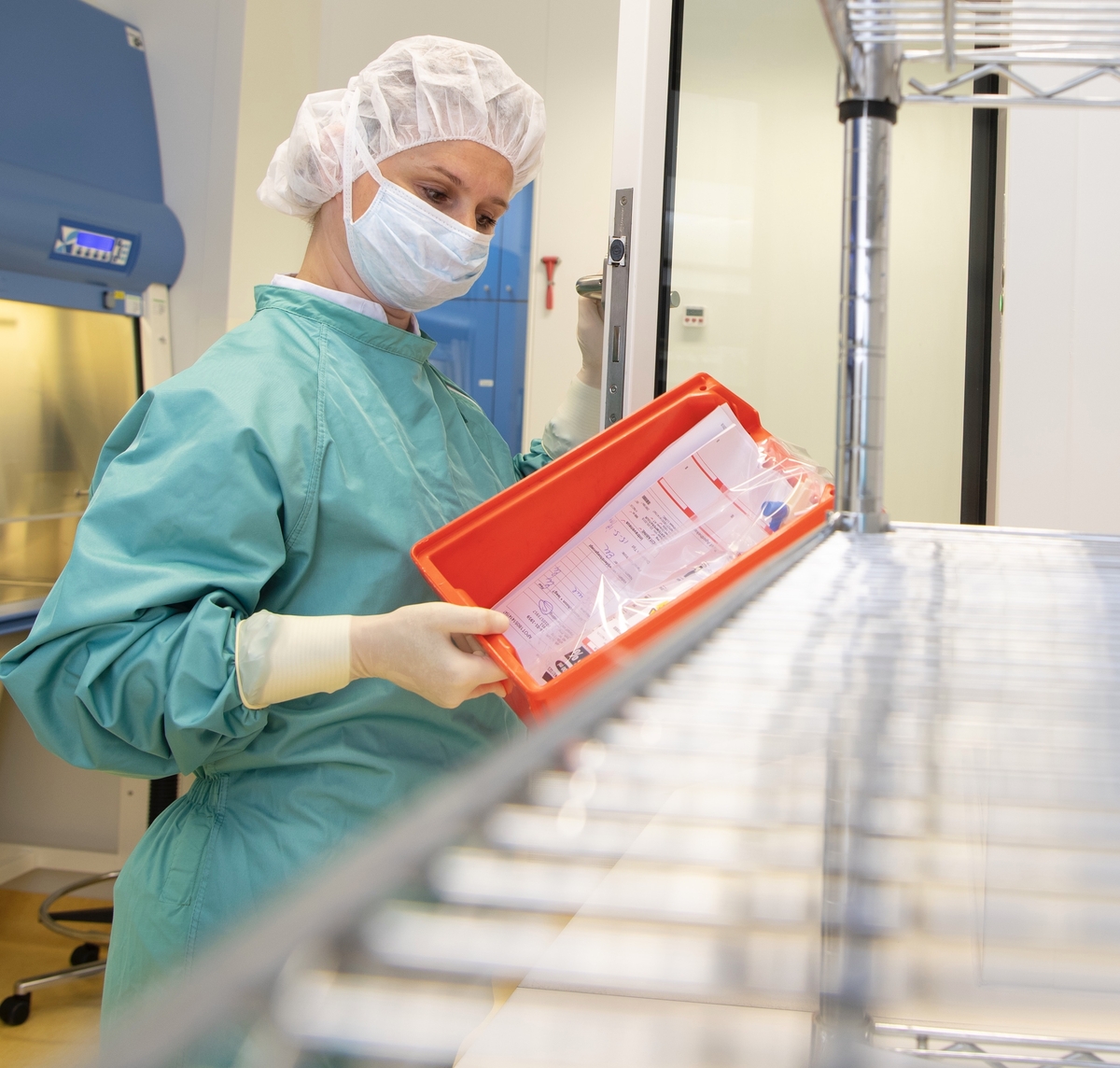 The European Association of Hospital Pharmacists (EAHP) has established a Special Interest Group (SIG) to gain more knowledge about the current and future use of prefilled medicines syringes (PFS) in hospitals. EAHP's SIG focused on the Use of Prefilled Syringes in Intensive Care Units and Operating Theatres (financially supported by BD) has prepared two surveys targeting on the one hand professional associations and on the other hand health professionals and managers.
The European Association of Hospital Pharmacists (EAHP) has established a Special Interest Group (SIG) to gain more knowledge about the current and future use of prefilled medicines syringes (PFS) in hospitals. EAHP's SIG focused on the Use of Prefilled Syringes in Intensive Care Units and Operating Theatres (financially supported by BD) has prepared two surveys targeting on the one hand professional associations and on the other hand health professionals and managers.
A PFS is a presentation of one or more active medicines, at the required concentration and volume, in the final syringe and ready for parenteral administration to the patient. PFS are intended to reduce error and minimise the time taken to prepare parenteral medicine by staff in clinical areas. PFS are manufactured/prepared by the pharmaceutical industry or hospital pharmacies.
Several additional benefits and some disadvantages have been reported for PFS. The SIG is preparing a comprehensive literature review on PFS.
Usage of PFS in hospitals in North America has been considerably larger than in Europe for many years. Recently the use of PFS in some European countries has increased.
The surveys have been designed to collect the views and opinions of a range of health professionals, managers, and professional associations on the current and future use of PFS. Participation is completely voluntary. It should take approximately 10 to 15 minutes to complete the survey. Feedback can be shared until the 31st of August 2022. The survey for professional associations is available in English. The survey for individual health professionals and managers can be completed in eight different languages (English, French, German, Hungarian, Italian, Serbian, Spanish and Turkish).
Access the survey targeting professional associations HERE
Surveys for individual health professionals:
- Access the English version HERE
- Access the French version HERE
- Access the German version HERE
- Access the Hungarian version HERE
- Access the Italian version HERE
- Access the Serbian version HERE
- Access the Spanish version HERE
- Access the Turkish version HERE
Share your views on automated medication management
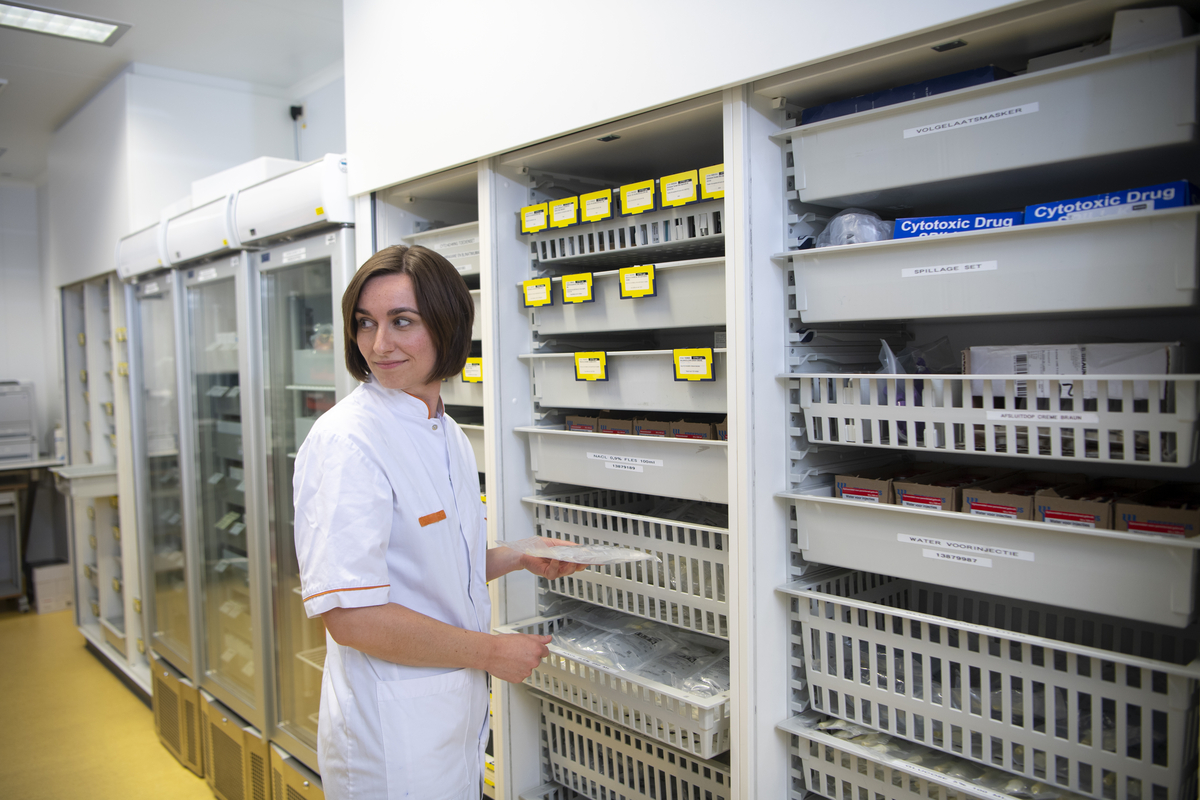 EAHP's Special Interest Group (SIG) on Automated Medication Management (financially supported by Omnicell) is currently investigating the benefits of automation. Hospital pharmacists are encouraged to share their views and opinions on the current and future use of automated medication management solutions. The deadline of the survey was extended until the end of July.
EAHP's Special Interest Group (SIG) on Automated Medication Management (financially supported by Omnicell) is currently investigating the benefits of automation. Hospital pharmacists are encouraged to share their views and opinions on the current and future use of automated medication management solutions. The deadline of the survey was extended until the end of July.
The activity of EAHP's SIG on Automated Medication Management focuses on the benefits of automation, particularly around the medication preparation/ compounding/ dispensing process, and how technology best meets the needs of different hospital pharmacy workflows. The short survey (10 to 15 minutes) seeks to gather input from individual hospital pharmacists. Participation is voluntary and the SIG is looking for one response per hospital pharmacy. Feedback can be shared until the 31st of July 2022 via one of the six different language versions of the survey (English, French, Italian, Polish, Slovak and Spanish).
EAHP's SIG looks forward to receiving your input via the survey on automated medication management.
Access the English version HERE
Access the French version HERE
Access the Italian version HERE
Access the Polish version HERE
Access the Slovak version HERE
Access the Spanish version HERE
Safeguarding antimicrobial medicines reserved for treating humans
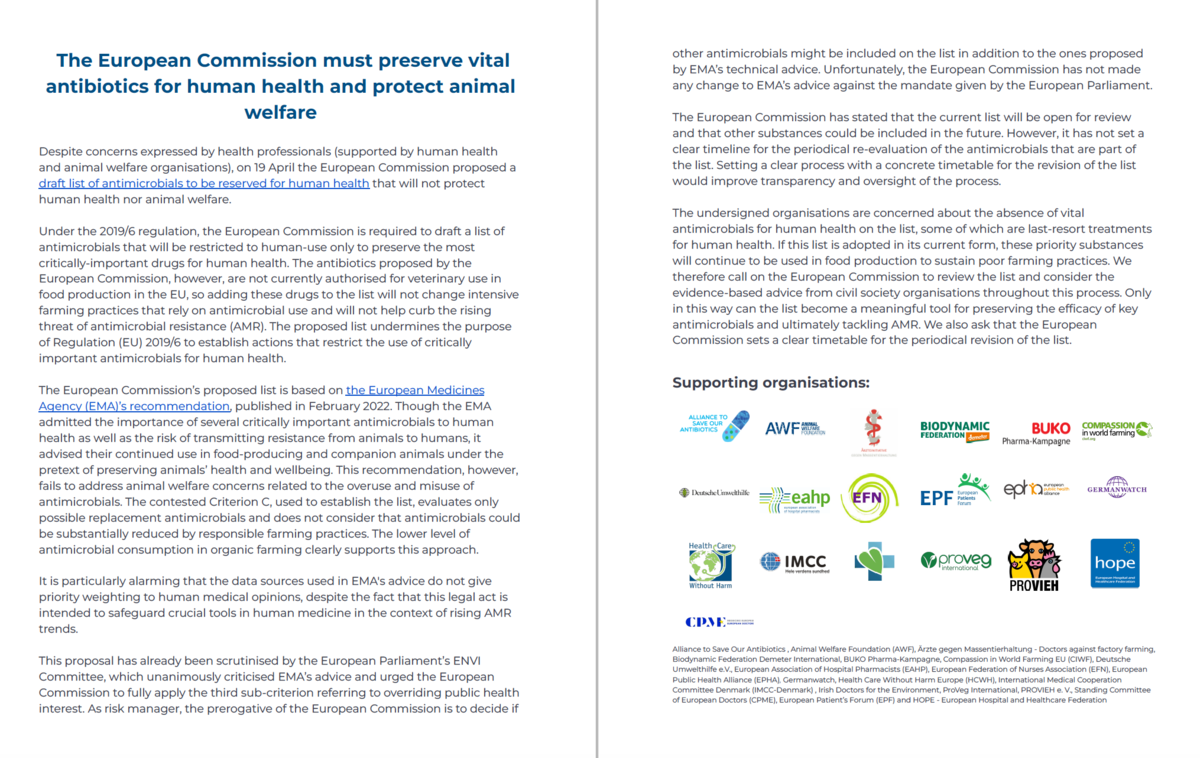 The European Parliament is discussing today the European Commission's list of antimicrobials or groups of antimicrobials reserved for treatment of certain infections in humans. European Association of Hospital Pharmacists (EAHP) and 18 other organisations active in the field of health and animal welfare have voiced their concerns about the absence of vital antimicrobials for human health on the list.
The European Parliament is discussing today the European Commission's list of antimicrobials or groups of antimicrobials reserved for treatment of certain infections in humans. European Association of Hospital Pharmacists (EAHP) and 18 other organisations active in the field of health and animal welfare have voiced their concerns about the absence of vital antimicrobials for human health on the list.
A joint statement supported by EAHP and others was published last month to respond to the European Commission's draft list of antimicrobial medicines reserved for treating humans. The joint statement calls on the European Commission to revise the list since some vital antimicrobials had not been considered. The call for action also encourages the European Commission to take into account the evidence-based advice from civil society organisations throughout this process.
Read the joint statement HERE
Healthcare students stand together for mental health
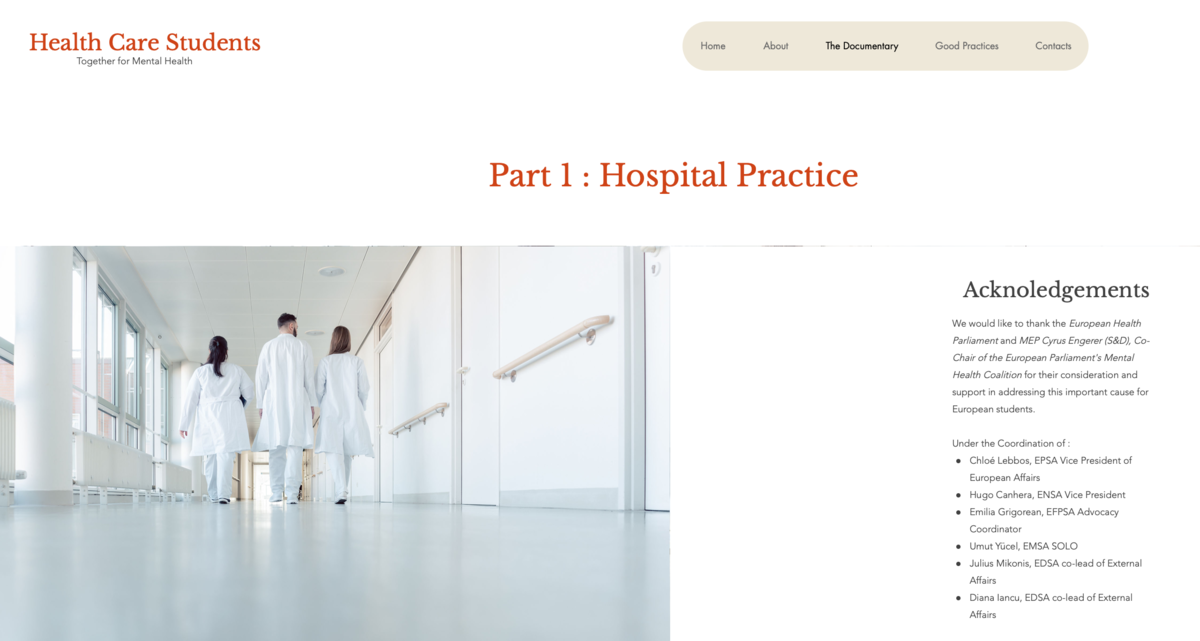 Youth mental health is a priority for the European Pharmaceutical Students' Association (EPSA). For that matter, together with the other healthcare student organisations representing medical, dental, nursing and psychology students, EPSA started to release a series of short films in the shape of a documentary on healthcare students' mental health.
Youth mental health is a priority for the European Pharmaceutical Students' Association (EPSA). For that matter, together with the other healthcare student organisations representing medical, dental, nursing and psychology students, EPSA started to release a series of short films in the shape of a documentary on healthcare students' mental health.
The idea behind the "Practice what you preach, healthcare students at the heart of a vicious cycle" documentary is to create an eye-opening film on the condition of health students in their various learning environments, as well as show the consequences on tomorrow's healthcare workforce. The documentary also contrasts the issues with solutions, proposed or already implemented by stakeholders all over Europe.
The documentary is divided into four parts touching on hospital practice, primary care practice, academia and good practices. Each of these parts shares testimonials from students and includes a call for action for the EU and Member States.
Watch the first part of the documentary HERE
EMA guidance supports development of new antibiotics
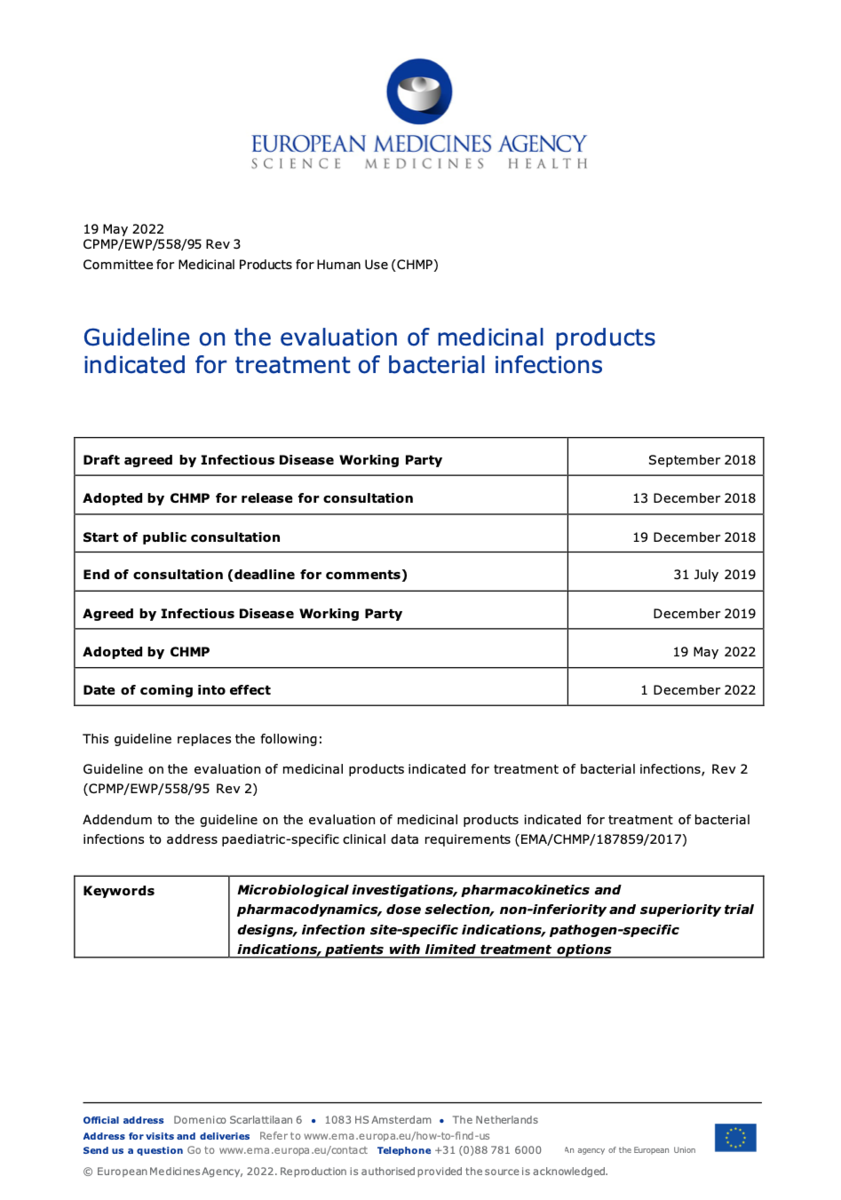 As part of its efforts to support a global approach to the development of new antimicrobial medicines, the European Medicines Agency (EMA) has published the final revised guideline on the evaluation of human medicines for the treatment of bacterial infections.
As part of its efforts to support a global approach to the development of new antimicrobial medicines, the European Medicines Agency (EMA) has published the final revised guideline on the evaluation of human medicines for the treatment of bacterial infections.
Antimicrobial resistance (AMR), which is the ability of microorganisms to resist antimicrobial treatments, especially antibiotics, has a direct impact on the health of people and animals and carries a heavy economic burden worldwide. In the European Union (EU) alone, it is responsible for an estimated 33,000 deaths per year. It is also estimated that AMR costs the EU €1.5 billion per year in healthcare costs and productivity losses.
EMA plays an important role in the fight against AMR by guiding and supporting the development of new medicines and treatment approaches, especially for patients with infections caused by multidrug-resistant bacteria, who currently have very few therapeutic options. As AMR is a global threat, regulators in the EU, the United States and Japan have agreed to align as much as possible their respective data requirements so that medicine developers can design clinical trials that meet the evidence needs of multiple regulatory agencies. The revised document reflects the outcome of these discussions, and also includes:
- clarifications on recommended clinical development programmes for antimicrobials intended to address an unmet need;
- guidance on clinical trials to support treatment of uncomplicated urinary tract infections and uncomplicated gonorrhoea;
- updated guidance on displaying microbiological and clinical efficacy data in the summary of product characteristics.
The revised guideline is published together with an addendum aiming to steer clinical development programmes required to support the authorisation of medicines for treatment of bacterial infections in children. For the treatment of some infections, efficacy results can be extrapolated in certain children age groups by looking at efficacy data from adults. The addendum mentions that companies developing new antibiotics need to develop an extrapolation concept and provide details about it in an extrapolation plan. For some infections that occur only or mostly in children below a certain age, extrapolating efficacy data from adults is not possible. The addendum includes guidance on trials that may be conducted in these exceptional cases.
Read the revised guideline on the evaluation of human medicines for the treatment of bacterial infections HERE
EJHP: Transition to adult services: the current and potential role of the UK hospital pharmacist
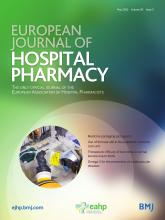
The European Journal of Hospital Pharmacy (EJHP) has published an online first article that explores the current and potential role for UK pharmacists in the transition to adult services for young people with chronic health problems. UK hospital pharmacists were surveyed using an online questionnaire with closed and open questions covering their involvement in a transition programme. The findings of this study support the role of hospital pharmacists as crucial members of the multidisciplinary team required for transition.
Read the article HERE
[EAHP Statement Corner]
Is it already time to update your SAT?
The implementation of the European Statements of Hospital Pharmacy is supported by the self-assessment tool (SAT) that helps pharmacies across Europe to understand the level of Statement implementation. To make the most out of the implementation plan feature, hospital pharmacies should regularly update their SAT. Talk to your chief pharmacist and encourage him/her to do an update. Learn more about SAT HERE




